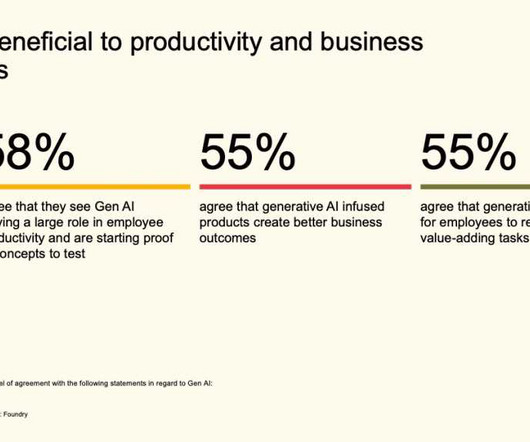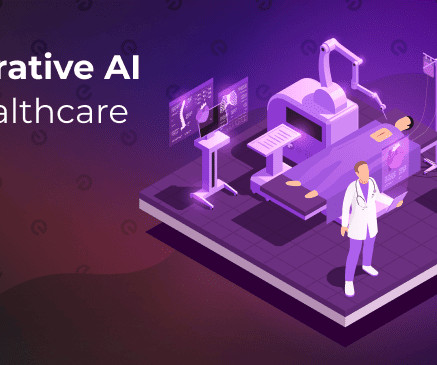CIOs press ahead for gen AI edge — despite misgivings
CIO
OCTOBER 18, 2023
OpenAI’s November 2022 announcement of ChatGPT and its subsequent $10 billion in funding from Microsoft were the “shots heard ’round the world” when it comes to the promise of generative AI. OpenAI’s late August announcement of the release of ChatGPT Enterprise based on GPT-4 included note of its use by Estée Lauder Cos.,















Let's personalize your content